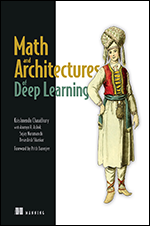Implementing Bayesian Model and Computation with PyMC
Bayesian statistics
| Intermediate
- 12 videos | 47m 29s
- Includes Assessment
- Earns a Badge
Learners can examine the concept of Bayesian learning and the different types of Bayesian models in this 12-video course. Discover how to implement Bayesian models and computations by using different approaches and PyMC for your machine learning solutions. Learners start by exploring critical features of and difficulties associated with Bayesian learning methods, and then take a look at defining the Bayesian model and classifying single-parameter, multiparameter, and hierarchical Bayesian models. Examine the features of probabilistic programming and learn to list the popular probabilistic programming languages. You will look at defining Bayesian models with PyMC and arbitrary deterministic function and generating posterior samples with PyMC models. Next, learners recall the fundamental activities involved in the PyMC Bayesian data analysis process, including model checking, evaluation, comparison, and model expansion. Delve into the computation methods of Bayesian, including numerical integration, distributional approximation, and direct simulation. Also, look at computing with Markov chain simulation, and the prominent algorithms that can be used to find posterior modes based on the distribution approximation. The concluding exercise focuses on Bayesian modeling with PyMC.
WHAT YOU WILL LEARN
-
Discover the key concepts covered in this courseIdentify critical features of and the difficulties associated with bayesian learning methodsDefine the bayesian model and classify single-parameter, multi-parameter, and hierarchical bayesian modelsDescribe the features of probabilistic programming and list the popular probabilistic programming languagesUse pymc to define a model and arbitrary deterministic function and use the model to generate posterior samplesRecall the fundamental activities involved in bayesian data analysis process, including model checking, evaluation, comparison, and model expansion
-
Implement bayesian data analysis with pymc using the rejection sampling approachRecognize the essential approaches that can be used to implement bayesian computation, including numerical integration, distributional approximation, and direct simulationDescribe markov chain simulation and how it is used for computationsImplement markov chain simulation using pythonList the prominent algorithms that can be used to find posterior modes based on the distribution approximationSpecify the essential features of probabilistic programming, recall the approaches that can be used to implement bayesian computation, and implement bayesian data analysis using pymc
IN THIS COURSE
-
1m 59s
-
6m 2sIn this video, find out how to identify critical features of Bayesian learning methods and the difficulties associated with them. FREE ACCESS
-
3. Bayesian Model Types3m 50sIn this video, you will define the Bayesian model and classify single-parameter, multi-parameter, and hierarchical Bayesian models. FREE ACCESS
-
4. Probabilistic Programming7m 5sAfter completing this video, you will be able to describe the features of probabilistic programming and list popular probabilistic programming languages. FREE ACCESS
-
5. Modeling with PyMC5m 53sIn this video, find out how to use PyMC to define a model and an arbitrary deterministic function, and use the model to generate posterior samples. FREE ACCESS
-
6. Bayesian Data Analysis Process5m 30sUpon completion of this video, you will be able to recall the fundamental activities involved in the Bayesian data analysis process, including model checking, evaluation, comparison, and model expansion. FREE ACCESS
-
7. Bayesian Data Analysis with PyMC4m 8sDuring this video, you will learn how to implement Bayesian data analysis with PyMC using the rejection sampling approach. FREE ACCESS
-
8. Bayesian Computation Methods2m 55sAfter completing this video, you will be able to recognize the essential approaches that can be used to implement Bayesian computation, including numerical integration, distributional approximation, and direct simulation. FREE ACCESS
-
9. Markov Chain Simulation2m 12sAfter completing this video, you will be able to describe Markov chain simulations and how they are used for computations. FREE ACCESS
-
10. Implementing Markov Chain Simulation2m 29sIn this video, you will learn how to implement Markov chain simulation using Python. FREE ACCESS
-
11. Finding Posterior Modes2m 21sAfter completing this video, you will be able to list the prominent algorithms that can be used to find posterior modes based on the distribution approximation. FREE ACCESS
-
12. Exercise: Bayesian Modeling with PyMC3m 5sAfter completing this video, you will be able to specify the essential features of probabilistic programming, recall the approaches that can be used to implement Bayesian computation, and implement Bayesian data analysis using PyMC. FREE ACCESS
EARN A DIGITAL BADGE WHEN YOU COMPLETE THIS COURSE
Skillsoft is providing you the opportunity to earn a digital badge upon successful completion on some of our courses, which can be shared on any social network or business platform.
Digital badges are yours to keep, forever.







